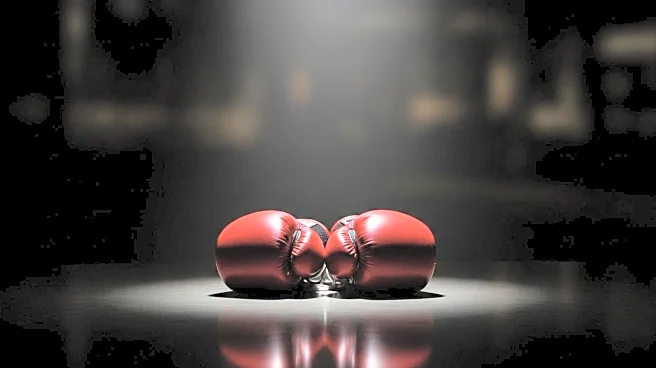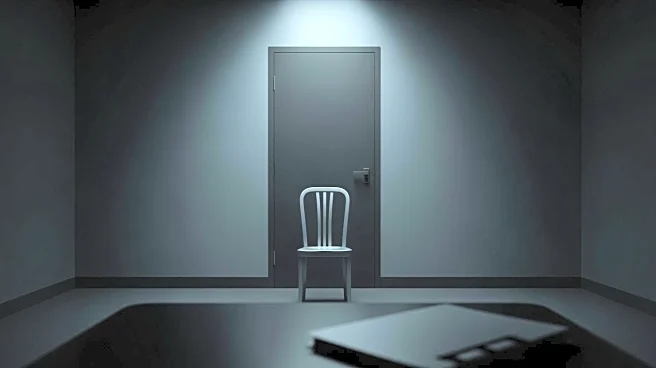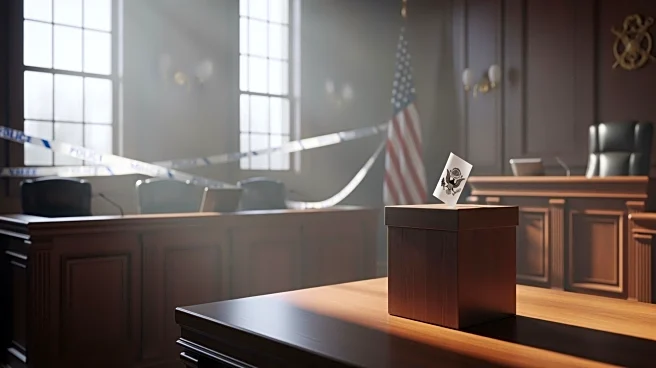What's Happening?
Ricky Hatton, a former world champion boxer known as 'The Hitman,' has died at the age of 46. Hatton, who had a successful career from 1997 to 2012, held multiple world titles in the light welterweight and welterweight divisions. He was set to make a comeback in December for a bout in Dubai, marking his return to the ring 13 years after his last professional fight. Hatton's career was marked by significant victories and notable defeats, including losses to Floyd Mayweather Jr. and Manny Pacquiao. Greater Manchester Police reported finding Hatton's body in Hyde, Tameside, with no suspicious circumstances surrounding his death. Tributes from the sports world have poured in, highlighting his impact on British boxing and his popularity among fans.
Why It's Important?
Ricky Hatton's death is a significant loss to the boxing community and sports world at large. Known for his charismatic personality and impressive career, Hatton was a beloved figure in British boxing, drawing large fan bases to his fights worldwide. His passing comes just weeks before his planned comeback, which was highly anticipated by fans and the boxing community. Hatton's struggles with mental health and personal issues were well-documented, and his story resonates with many who face similar challenges. His legacy in the sport, marked by his achievements and personal battles, continues to inspire both fans and aspiring boxers.
What's Next?
In the wake of Hatton's death, tributes and memorials are expected to continue from fans, fellow athletes, and sports organizations. Manchester City, a team Hatton supported, plans to hold a minute's appreciation during the Manchester derby. The boxing community may reflect on Hatton's contributions to the sport and his influence on future generations of fighters. Discussions around mental health in sports may be further highlighted, considering Hatton's public battles with depression and addiction.
Beyond the Headlines
Ricky Hatton's life and career offer insights into the pressures faced by professional athletes, particularly in combat sports. His journey from world champion to personal struggles underscores the importance of mental health support for athletes. Hatton's ability to connect with fans through his down-to-earth demeanor and resilience in overcoming personal challenges serves as a reminder of the human side of sports figures. His story may prompt broader conversations about the support systems available to athletes dealing with similar issues.








